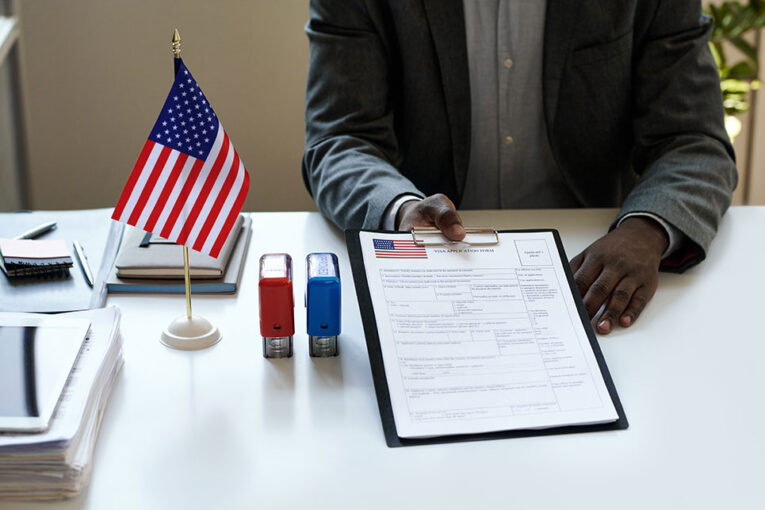Losing a loved one is difficult enough without questioning their last wishes. But sometimes there are legitimate concerns that a will might be invalid or fail to represent the deceased’s intentions. Contesting a will is not a decision to make lightly, but could be necessary to ensure a proper inheritance distribution. This guide examines the common grounds for challenging a will, the process involved, and key considerations to determine if a will contest is worthwhile for your situation.
What is a Will Contest?
A will contest, sometimes called a will challenge, disputes the validity and intentions dictated in the will document. The goal is to prove the will fails to meet legal standards in some way, such as:
- The testator (person creating the will) lacked proper mental capacity
- Undue influence or duress manipulated the testator
- Improper execution failed to meet legal formalities
- Fraud or forgery produced false documentation
If successful, the court invalidates all or part of the contested will, so estate assets transfer per existing laws. Each state has specific rules and time limits for contesting wills, usually requiring action within a short window after the testator’s death.
Valid Grounds for Challenging a Will
The burden of proof falls on will contestants to provide clear and convincing evidence against the will’s validity. Common grounds include:
Testamentary Capacity
The testator must be of legal age and have a sound mind to execute a valid will. Contests might allege the testator lacked proper mental capacity at the time due to:
- Dementia or Alzheimer’s impact cognition, memory, or judgement
- Delirium from illness, injury, or medication side effects
- Intoxication from alcohol, recreational drugs, or medications
Without testamentary capacity, courts consider the testator unable to fully understand their decisions or withstand influence from others. Medical records, videos, or testimony might provide supporting evidence.
Undue Influence
Predatory persuasion or coercion that overrides free will constitutes undue influence. This often involves someone in a position of trust—like a caregiver, family member, or close friend—manipulating a vulnerable testator. Documented evidence must prove the influencer engineered the change, not just benefited from it.
Forgery or Fraud
The courts must validate the will’s authenticity. Contests might allege forgery of signatures or provisions. Other claims of fraud include switching original documents or making deliberate misrepresentations to the testator. Circumstantial evidence like handwriting analysis or paper trail irregularities often come into play.
Improper Execution
Each state legally mandates execution formalities for a valid will, like:
- Signed by the testator in witnesses’ presence
- Two adult witnesses sign to confirm
- testator acted with sound mind and free will
Contests based on improper execution argue these formalities were incomplete or defective. Courts might sustain this if concrete evidence proves errors deviating from state law.
The Will Contest Process
Contesting a will involves navigating complex legal protocols. Knowing the standard procedures helps evaluate if a challenge seems worthwhile.
Initiating a Contest
The first step entails filing a contest petition with the appropriate probate court overseeing the estate. This should outline the grounds for invalidating the will and formally start legal proceedings. Strict time limits often apply, usually within a few months of the will entering probate.
Evidence Gathering
Building an effective argument requires collecting reliable evidence to support the arguments. This might involve compiling medical records, financial statements, correspondence, or affidavits from key witnesses. Credible evidence substantiates claims much better than hearsay or conjecture.
Discovery Process
The discovery process facilitates evidence exchange between parties. This gives contestants access to inside information related to the will execution, estate management, and more. Interrogatories, requests for production, and depositions help uncover supporting details.
Mediation and Settlement
Many contests resolve through mediation before reaching trial. This facilitated dispute resolution can save time, money, and relationships strained by legal adversarial processes. settlement happens if both sides negotiate agreeable terms.
Trial
If mediation fails, the court decides the will’s validity at a full civil trial. Both sides present arguments and evidence to either uphold or invalidate the existing will. This outcome determines how estate assets are distributed.
Key Considerations for Contesting a Will
Despite valid complaints, contests carry significant downsides to weigh.
Financial Costs
Pursuing litigation gets expensive quickly between legal counsel, filing fees, extensive evidence gathering, and more. Contests can easily cost tens or hundreds of thousands of dollars, even if they are successful. This factors into any potential inheritance gains.
Emotional Toll
Legal feuds take emotional tolls on everyone involved due to family tensions or public attacks on the deceased. Reputations and relationships often suffer irreparable damage, regardless of the outcome.
Alternative Dispute Resolution (ADR)
Mediation and arbitration through alternative dispute resolution (ADR) sometimes resolve contests faster and less adversarially than litigation. While still costly, preserving family harmony might outweigh slightly smaller financial gains.
Seeking Legal Help
Experienced probate attorneys prove invaluable for traversing will contests. They offer specialized understanding of state laws, protocol guidance, and advocacy services.
Importance of an Attorney
The intricate legal complexities involved make attorneys virtually essential for successfully challenging a will. Navigating evidence rules, legal arguments, court procedures, and settlement negotiations requires expertise beyond that of most laypeople.
Finding the Right Lawyer
Seeking referrals from trusted professionals or the state bar association helps vet qualifications. Opt for probate lawyers well-versed in will contests specifically, not just estate matters generally. Confirm sufficient availability for extensive case involvement.
Recap and Key Takeaways
Contesting a will makes sense for serious infractions but requires cautious evaluation. Seek qualified legal advice early on to discuss distinct state laws, realistic chances given the evidence, potential arguments, and decision guidance tailored to your unique situation before committing resources. If merit seems strong, credible documentation and a competent attorney set the best foundation for success. Expect significant demands on time, emotions, and budget, regardless of the outcome. Weigh the costs against the principles at stake and realistic inheritance gains.
Seeking Professional Guidance
While no article substitutes proper legal counsel, hopefully this breakdown of will-contest considerations, procedures, and advice brings some initial clarity during an enormously difficult time. Please consult with a probate attorney specializing in will contests to discuss your specific case details and options. Many provide free initial consultations to assess the merits and projected course. Navigating these waters alone rarely ends well, but the right lawyer can make all the difference.
FAQ Questions
Common legal grounds for contesting a will’s validity include lack of testamentary capacity, undue influence, fraud/forgery, improper execution, or discovery of undisclosed assets impacting provisions. Each state has specific laws regarding which claims justify invalidating a will.
Consult with a probate attorney to have them review the will and assess if legitimate factors like mental incapacity, coercion, and forgery seem applicable based on the circumstances and evidence available. They can gauge if grounds exist to reasonably challenge validity.
It depends on the specific grounds alleged, but might require medical records indicating mental decline, affidavits testifying to coercion, handwriting analysis suggesting forgery, or documentation of improper execution procedures.
Contested probate cases generally resolve or reach trial within 1-2 years. Simple contests might end fairly quickly through dismissal, settlement, or summary judgement. Complicated cases with extensive discovery processes or full trials can take multiple years.
Financial risks from legal costs and losses, emotional risks from family conflict, reputation damage, time commitment, and an uncertain outcome that could deny inheritance rights entirely. Weigh risks against potential gains before moving forward.
Instead of litigation, mediation allows for resolving disputes more collaboratively, or parties might negotiate an acceptable settlement. Beneficiaries can also disclaim inherited assets directed elsewhere.
If successful, the court invalidates all or part of the contested will. This nullifies improper provisions and requires redistributing any impacted assets per that state’s inheritance laws.
If unsuccessful at proving invalidity, the existing will remains legally binding. Contestants might receive nothing from the estate and get ordered to pay all legal fees for both sides, quickly totaling huge sums.
Yes, navigating will contests requires extensive legal expertise in that state’s probate laws and procedures. Handling anything beyond initial consultations without an attorney rarely succeeds and risks missing deadlines or other complexities.





